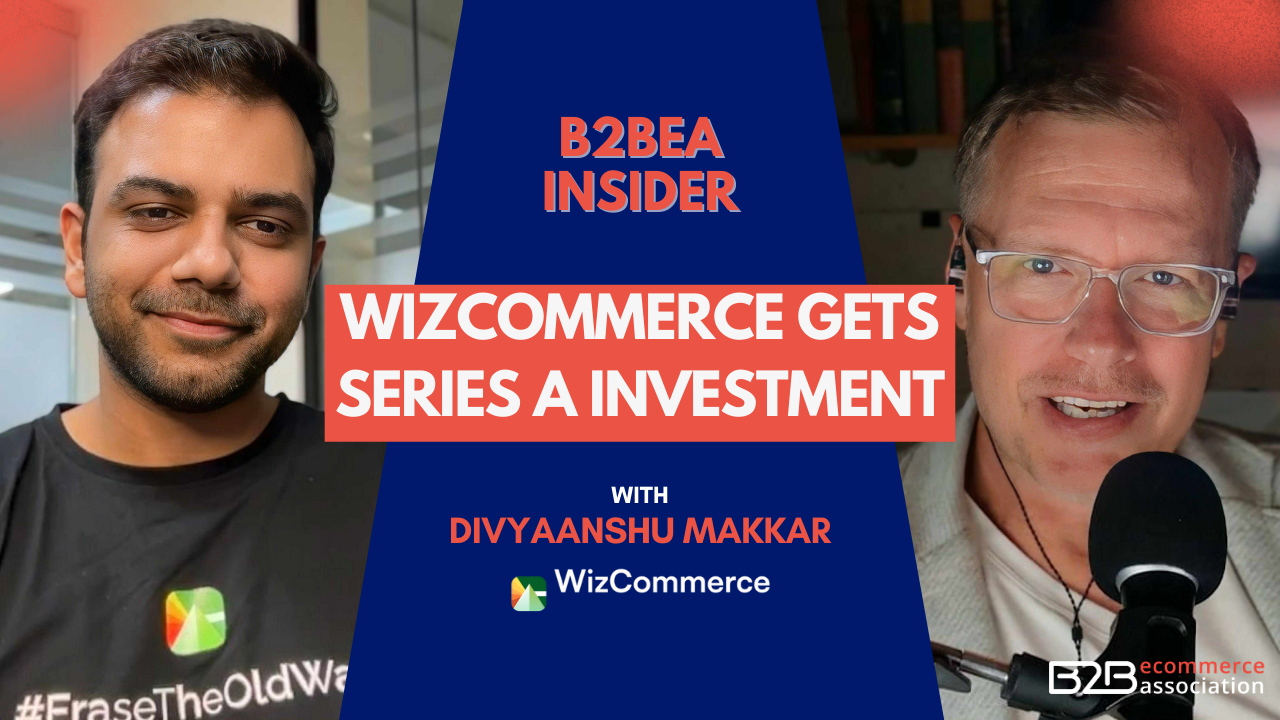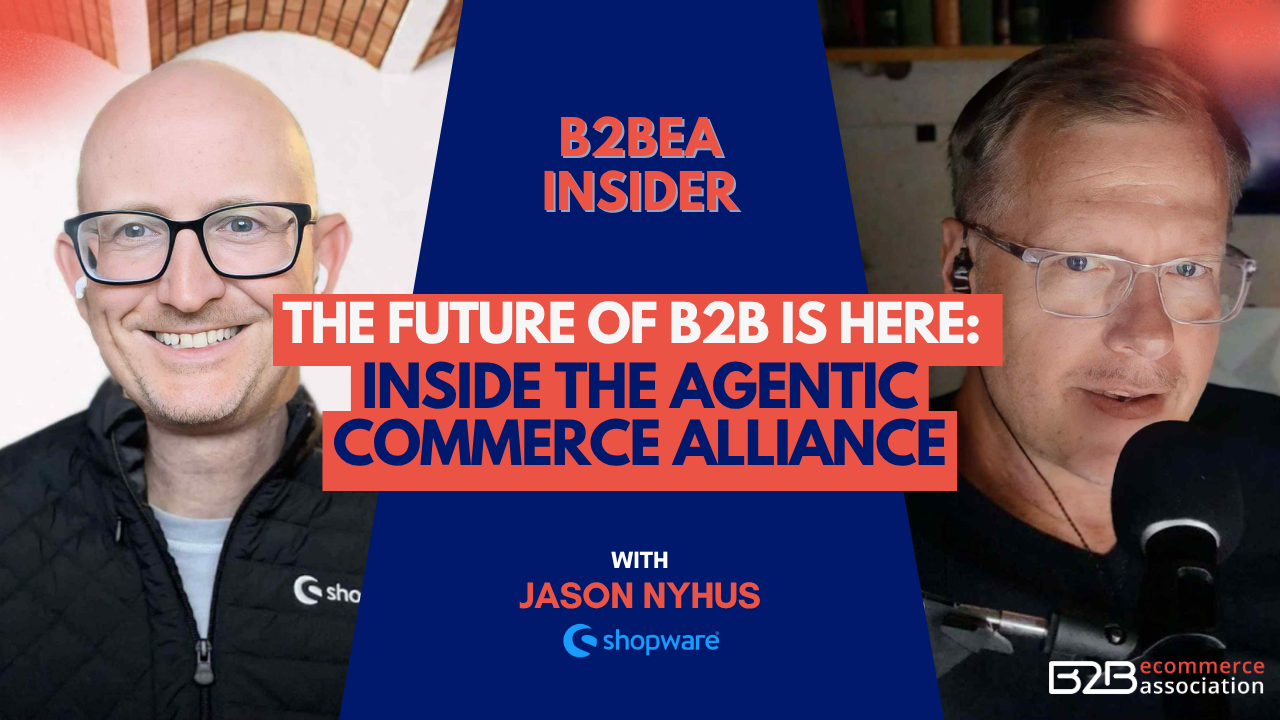INSIDERS: Digital Sales Rooms Are Changing The Game With Jason Nyhus
After more than two decades in the eCommerce industry, Jason Nyhus thought he had seen it all. From leading roles at Digital River during the dot-com boom to navigating the evolution of enterprise platforms, he had lived through the rise (and fall) of monolithic software.
So when a recruiter approached him in 2021 about a platform called Shopware, his first thought was blunt but honest: Why does the world need another commerce platform?
That question quickly turned into an opportunity—because Shopware wasn’t just another platform. It was purpose-built for a segment that most providers overlook: the complex, underserved mid-market.
From Digital River to Digital Differentiation
Jason’s early experience at Digital River shaped much of his perspective on the ecosystem-driven nature of eCommerce. Back then, Digital River was the “we do it all” vendor, bundling payments, fraud, tax, and commerce into one platform. But over time, customers began unbundling services, seeking best-in-class providers across the ecosystem.
That shift taught him a core lesson: the power of flexibility and specialization beats monolithic control.
It’s a philosophy that aligned perfectly with Shopware’s approach—especially in today’s environment, where composability, openness, and customizability are non-negotiable for many B2B merchants.
Why the Mid-Market Is Still Underserved
Shopware focuses on mid-market businesses—but Jason is quick to point out that the definition goes far beyond revenue bands.
Mid-market, in his view, means companies with unique workflows, pricing models, packaging strategies, or service relationships—businesses that can’t afford to be shoved into someone else’s mold.
They want flexibility. They need composability. But they don’t have the massive budgets or IT teams to build from scratch.
That’s where Shopware offers something rare:
- A modular, open-source platform
- Hosted however the merchant prefers—SaaS, PaaS, or BYO cloud
- With fixed licensing models that avoid punitive revenue shares
As Jason explains, “These businesses are allergic to rev share—and they should be. They don’t want a tax on their margin. They want capitalizable, predictable cost structures.”
The Fallacy of the Consumerization of B2B
Jason has strong views on a phrase that’s long overstayed its welcome: the consumerization of B2B.
He considers it one of the most misleading narratives in the industry—one that’s led platforms to focus on the “easy 10%” of B2B: self-service, portal-style transactions that represent a fraction of total revenue.
The real opportunity lies in what he calls the “hard 90”—the relationships, workflows, and processes managed by sales reps. That’s where most B2B revenue lives, and it’s the area most digital platforms continue to overlook.
Introducing the Digital Sales Room
To address this gap, Shopware introduced one of its most innovative tools: the Digital Sales Room.
Inspired by telehealth in the healthcare space, the Digital Sales Room enables B2B reps to:
- Curate product experiences tailored to each customer
- Host guided sessions through a shared eCommerce interface
- Track margin, inventory, and commission in real-time
- Sync interactions directly into the CRM using modern webhooks
Rather than replace the sales rep, Shopware empowers them. It gives them tools to serve more accounts, with more insight, and with far less friction.
It’s a significant evolution—not just in technology, but in how digital and human selling can finally converge in B2B.
Flexibility Without Lock-In
Another core principle Jason emphasizes is openness. Unlike many platforms that force merchants into using proprietary payments or third-party add-ons, Shopware embraces openness.
Merchants can choose their payment partners, integrate their preferred tools, and retain full control over data and cost structures.
Jason’s realization about this model was personal. “I didn’t truly appreciate the business value of open until I saw what it enables—especially for businesses of scale. Saving 40 basis points on payments might sound small. But at $50 million in revenue, it’s massive.”
The Goldilocks Model for B2B Architecture
Shopware isn’t trying to be everything to everyone. In fact, Jason openly admits the company has ceded the “simple commerce” market to platforms like Shopify.
Instead, Shopware is focused on what he calls the “Goldilocks” middle ground:
- Too complex for rigid SaaS tools
- Too lean for heavy enterprise stacks
- Just right for businesses that need both flexibility and focus
Whether it’s multi-cloud deployments, custom workflows, or deep ERP integrations, Shopware meets manufacturers and distributors where they are—without asking them to compromise what makes them unique.
Redefining Success in B2B Commerce
Jason believes that B2B commerce success hinges on six key principles:
- Recognize the real differences between B2B and B2C.
- Choose a platform built for complex, not just simple, B2B.
- Avoid rev share—it’s a tax on your growth.
- Demand openness—vendor lock-in kills long-term innovation.
- Prioritize your sales reps—the hard 90 is still your biggest opportunity.
- Use partners who understand your world, not just your code.
Final Thoughts: Purpose-Built for What’s Next
Shopware isn’t trying to win on buzzwords or branding. As Jason puts it, “Most of our customers aren’t sexy logos. They’re distributors in oil and gas, building products, and industrial supply. And they need a platform that understands their pain—not just their product catalog.”
With the launch of tools like the Digital Sales Room, a flexible PaaS infrastructure, and a commitment to serving the complex mid-market, Shopware is showing that the next generation of B2B commerce won’t be built on the assumptions of B2C.
It’ll be built on openness, real-world workflows, and tools that make sales teams better, not obsolete.
And in a market full of sameness, that’s more than just refreshing—it’s necessary.









